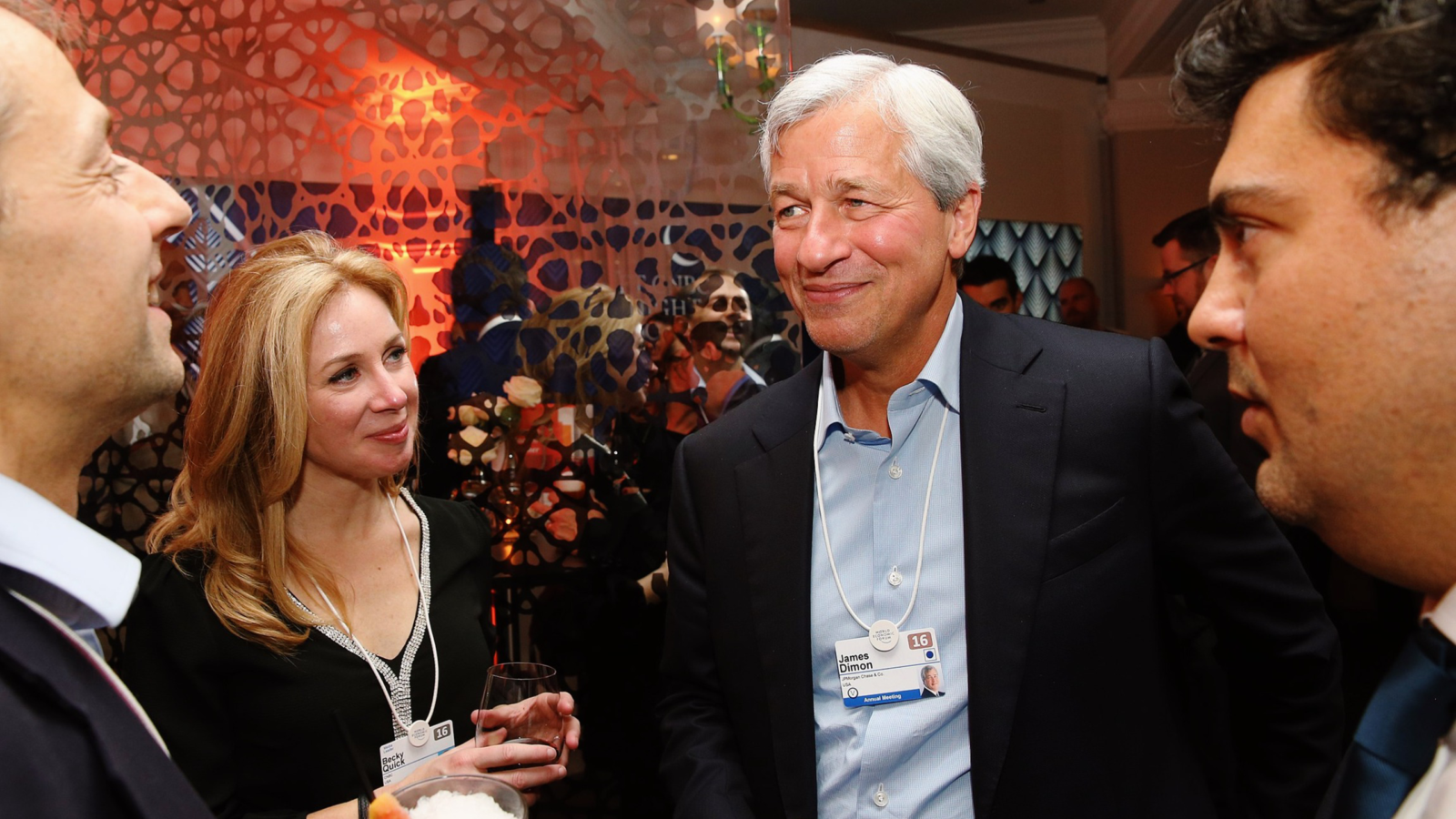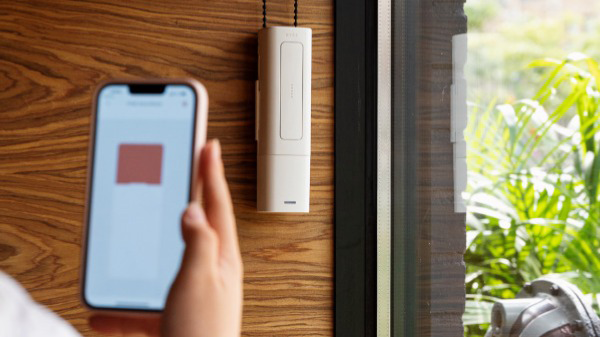Good morning.
There are some things too precious for a trade war. On Monday, the EU decided to implement a range of counter-tariffs in response to US duties on steel and aluminum, hitting things like orange juice and soybeans. But among the things that were left off were whiskey and wine, apparently at the urging of Italy, Ireland and France.
Have you heard the one about the Frenchman, the Italian and the Irishman who walk into a bar in Brussels at the end of the workday? When the bartender asked them why they had beaming smiles, the Irishman ordered a whiskey and said “we saved our spirit,” the Frenchman ordered a wine and said “we saved our grapes” and the Italian — who noted the three had just left work from the European Union’s offices in the city — added “we saved our happy hour.”
Time to Duck and Cover? Billionaires Brace for Tariff Fallout

“Don’t be a PANICAN!” That was President Donald Trump’s call to Americans on Monday, in the face of markets, well, panicking after last week’s global tariffs announcement.
In the hours following that plea, panicans added some very prestigious members to their ranks: The head of America’s largest bank warned inflation is likely going up and the head of the world’s largest asset manager said the economy might already be in recession.
On Canary Watch
JPMorgan CEO Jamie Dimon had been pretty quiet on the macro front since he told people in January to “get over” tariffs, which he said would be good for national security and only a “little inflationary.” In his annual shareholder letter, released Monday, the sage-king of Wall Street was singing a different tune: The potential of a global trade war is threatening the economy with “considerable turbulence,” he wrote, adding that last week’s tariffs “will likely increase inflation and are causing many to consider a greater probability of a recession.”
Dimon’s assessment — which many on Wall Street viewed as a full sounding of the alarm — was practically muted next to BlackRock CEO Larry Fink’s. “Most CEOs I talk to would say we are probably in a recession right now,” he told the Economic Club of New York. “One CEO specifically said the airline industry is a proverbial bird in a coal mine — canary in the coal mine — and I was told that the canary is sick already.”
So why the sudden outcry? There are a couple of indicators:
- A survey of executives taken at last month’s Yale CEO Caucus — which Dimon attended — found that 44% said they would wait until the market fell 20% before publicly criticizing the administration’s policies. Early Monday morning, the S&P 500 briefly swung 20% below its record closing high, an apparent psychological breaking point.
- Then there are the unique challenges the Federal Reserve would face managing inflation in a trade war-driven recession. Typically inflation is lower in a weak economy, giving the central bank room to decrease interest rates but, since tariffs are inflationary, Fink warned “we could have elevated inflation that’s going to bring rates up much higher than they are today,” adding he now sees “zero chance” of the Fed making the currently forecasted four interest rate cuts this year.
The critics are inside Trump’s political tent, too. Dimon’s and Fink’s remarks came a day after hedge fund billionaire Bill Ackman — a vocal Trump supporter — warned that prolonged tariffs will risk a “self-induced, economic nuclear winter.”
The Off-ramp: Just how happy would markets be if there was a tariff pause? A false story that spread on social media Monday morning, which claimed Trump was considering a “90-day pause in tariffs” and was erroneously picked up by CNBC and Reuters, caused an 8.5%, $3.6 trillion S&P 500 rally in little over half an hour (after the error was noticed, markets reversed and the index finished virtually flat). Trump said he’s willing to make “fair deals” with other countries and that the administration will “immediately” strike up talks with some 50 nations that have requested meetings. Earlier this year, most CEOs were pinning their hopes on tax cuts and deregulation; now, they’re rooting for the diplomats.
Google Bought Nest ($3.2B), Amazon Acquired Ring ($1.2B)

Now, there’s a new smart home disruptor — and you can invest before the next big wave.
Meet RYSE, the company transforming smart shades. With $10M+ in revenue and 200% year-over-year growth, RYSE is revolutionizing how we control window shades. Now in 127 Best Buy stores and launching in Home Depot in 2025, RYSE holds 10+ granted patents and an exclusive Amazon partnership.
Over 2,500 investors have already joined, and the smart home market is projected to grow 23% annually. RYSE is positioning itself as the next big acquisition target. Invest now at $1.90/share and get up to 25% bonus shares!
Can ‘A Minecraft Movie’ Reboot Hollywood’s Tough Year?
Maybe Warner Bros. Discovery can get out of survival mode for a little bit. After smashing all sorts of records in the world of video games, Minecraft is now smashing all sorts of records in the world of movies.
In its debut this weekend, A Minecraft Movie lit the box office on fire. It’s a much-needed win for the battered WBD — as well as Hollywood writ large.
Survive Till ’25
That A Minecraft Movie is performing well should be no surprise. The video game, which was officially released in 2011 (though it gained popularity in pre-release ‘beta’ form for years prior), is the best-selling video game of all time, boasting some 350 million copies across just about every video game platform available in the past decade and a half — from the iPhone to the PlayStation 5. Now the franchise, which debuted to $163 million at the domestic box office and $301 million worldwide, also holds the titles of the highest-ever domestic box office debut for a video game adaptation (besting Super Mario’s $146 million debut in 2023), as well as the best debut of the year so far.
Its strong performance is welcome news to the entire industry. For years now, battling the pandemic, the historic dual-talent strikes of 2023, a great streaming corrective, and just about every other headwind imaginable, Hollywood has been uttering one mantra over and over: “Survive til 2025.” The bad news: 2025 has yet to be the bountiful year executives were hoping to survive til. The good news: The conditions for a good box office year may very well be materializing. Unfortunately, that’s bad news for just about everyone other than Hollywood executives:
- Box office revenue was down 11% year-over-year through the first quarter of 2025, according to Comscore, fueled by a 50% dip in March alone. In fact, the first quarter has been a “historically slow movie-going season,” Fandango director of movie analytics Shawn Robbins recently told CNN.
- The upshot: Bad macroeconomic conditions tend to be good for the box office, as audiences seek escape from reality. In fact, box office totals have actually increased in six of the last eight recessions, according to a 2022 analysis done by Variety (JPMorgan recently pegged odds of a recession this year at 60%).
Job Insecurity: The success of Minecraft gives WBD a major victory and a potential new reliable blockbuster franchise when it needs it most. Its film studio’s two biggest releases so far this year — the sci-fi satire Mickey 17 and mafia epic The Alto Knights — both bombed at the box office, and Bloomberg reported last week that CEO David Zaslav has started meeting with candidates to possibly replace studio heads Michael De Luca and Pamela Abdy. Never mind that Zaslav reportedly forced his studio heads to greenlight the latter film.
53 Patent Filings, 190,000+ Reservations.* BOXABL aims to disrupt the outdated trillion dollar building construction market. The standard home takes 7 months to build. BOXABL can put a home out of their assembly line every four hours. Time is running out to invest in BOXABL. Join 40,000 investors and invest for a minimum of $1,000.
Fasten Your Seatbelts: Airlines Brace for Tariff Turbulence
The “White Lotus” effect isn’t enough to make up for waning travel demand as tariffs rock the economy.
Analysts say major airlines are expected to slash their profit outlooks even more than they already have when they report first-quarter earnings this month. First up: Delta reports tomorrow after cutting its growth outlook last month to a max of 5% from an earlier prediction of 6% to 8%.
American and Southwest, which are expected to report later this month, also trimmed their performance forecasts last month. The airlines said that both business and leisure travelers have been skipping flights as fears of a recession and uncertainty around tariffs mount.
Since then, the US has hit the global economy with tariffs of no less than 10% on everywhere from China to Heard Island (an uninhabited island near Antarctica whose main residents are penguins).
Airline stocks have nosedived: Delta, American, and United have each fallen 35% to 45% this year. And it’ll take more than a coffee and stroopwafel to pick them up.
Scrapping the Summer Euro Trip
Post-pandemic revenge travel is coming to an abrupt end. When the world reopened circa 2022, airlines saw strong demand for international trips from wanderlusting travelers making up for lost time. Meanwhile, high-income jetsetters boosted airlines’ bottom lines by splurging on costly extras like roomier seats.
While travel demand isn’t expected to fall back to pandemic levels, the industry’s worst-ever crisis, data firm Cirium already found online travel-agency bookings between the US and Europe are down 13% this summer compared with last year:
- Likewise, hotel company Accor (Sofitel, Fairmont) said EU bookings by Americans are down 25% for the summer.
- It goes both ways: Tariff-rattled Canadians are canceling trips into the US, with analytics company UAG finding that flight bookings from Canada into the US have fallen 70%.
Bumpy Ride: While tariffs and overall economic uncertainty aren’t likely to be as devastating to the travel sector as the pandemic was, they’re similarly hitting all types of travel. US travel seems to be falling both internationally and domestically, for both business and leisure travelers (not to mention government workers), and for both frugal and first-class fliers. It seems consumers can’t help but catch feelings (aka fear and doubt) instead of flights.
Extra Upside
- Double Take: US regulators have been ordered to take a second look at Nippon Steel’s bid for U.S. Steel, raising hopes the mammoth acquisition could be approved.
- Courting Controversy: The US Chamber of Commerce is considering suing to stop the White House from implementing tariffs on foreign goods.
- Want To Get Even Smarter About Stocks? Join 200,000 investors who get Opening Bell Daily in their inbox. It’s packed with markets and macro analysis you won’t find anywhere else. Subscribe for free.**
** Partner
Just For Fun
Disclaimer
*This Reg A+ offering is made available through StartEngine Primary LLC. This investment is speculative, illiquid, and involves a high degree of risk related to this offering including the possible loss of your entire investment. See EDGAR page here. *Reservations are non-binding and do not require a paid deposit. Actual sales may be lower than total reservations.

